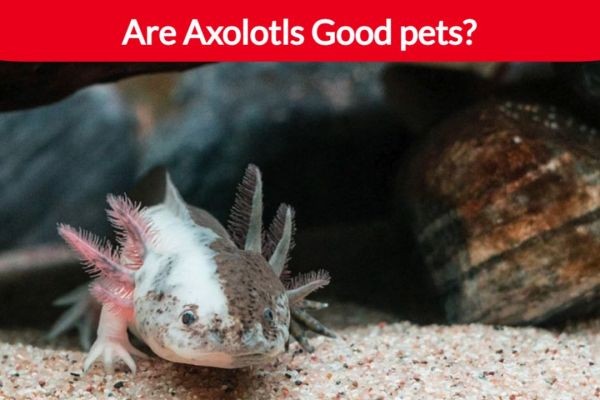Stand up for animal rights by recognizing their sentience and advocating for legal standing. Support ethical farming and sustainable diets for a compassionate world.
08/15/24 • 63 Views
Advocating for animals today involves standing up for their rights and welfare, recognizing that they can feel pain, have emotions, and deserve justice. Scientific research backs the idea that animals are conscious individuals, which is reshaping global attitudes and laws. You're backing movements that give animals legal standing, allowing them to have representation in court to oppose cruelty. By opting for ethical farming methods and sustainable diets, you contribute to a more compassionate and environmentally conscious world. Getting involved in this advocacy demonstrates a dedication to ethical principles and empathy. Together, we can keep striving for progress that guarantees a more just world for all beings.
Key Takeaways
- Standing for animals today involves recognizing their legal right to be represented in court for protection against cruelty.
- It includes acknowledging animals' sentience, and ensuring their capacity for pain and emotions is respected.
- Legal frameworks are increasingly amended to grant animals standing, enabling direct advocacy and enforcement of welfare laws.
- The concept reflects a shift towards viewing animals as deserving rights and ethical consideration, rather than mere property.
- Scientific and public recognition of animal consciousness influences legal and social reforms to enhance their welfare and rights.
Recognizing Animal Sentience
Recognizing animal sentience opens your eyes to the fact that animals, much like humans, experience pain, emotions, and consciousness. This understanding is essential in the domain of animal rights, pushing you to see beyond traditional views that treat animals as mere objects. Scientific research now supports this perspective, revealing that animals are capable of feelings and deserve to be treated with compassion and respect.
You're not alone in this realization. Worldwide, there's a growing acknowledgment of animal sentience, which is reshaping how societies think about and treat animals. This shift is vital for advocating effectively for their rights and welfare. When you understand that animals experience the world in ways similar to humans, you're more likely to support and push for changes that protect these vulnerable beings from suffering and exploitation.
This isn't just about loving animals; it's about justice and ethical responsibility. By recognizing their sentience, you advocate for a world where animals aren't subjected to cruelty or indifference. Each step you take in acknowledging the complex emotional lives of animals strengthens the foundation of animal rights, ensuring they lead happier, more respected lives.
Legal Rights and Standing
You've seen how animals, once deemed mere property, are now increasingly recognized as sentient beings with potential rights. However, the challenge remains in legally establishing animals as entities that can hold standing in court, a critical step needed to enforce animal welfare laws effectively. Advocating for legal frameworks that acknowledge animals as legal persons is crucial, ensuring they've got the protection and rights required to combat abuse and mistreatment.
Legal Standing Challenges
Although animals have traditionally been seen as mere and powerless objects in Western legal systems, the recent push for their legal rights highlights the pressing need to address their lack of standing in court. As you're aware, legal standing is an essential aspect for anyone or anything to bring a lawsuit. Without it, animals remain vulnerable and their legal protections are difficult to enforce.
Imagine the impact of granting legal standing to animals:
- A neglected dog could indirectly champion its cause in court, seeking redress and protection against cruelty.
- An endangered species could 'speak' through legal advocates to protect its habitat from encroachment or exploitation.
- Farm animals could benefit from representatives fighting for their welfare rights, ensuring humane treatment and living conditions.
Yet, despite these compelling scenarios, the current legislative framework often doesn't support such advances. Congressional oversight and outdated statutes continue to impede progress, treating animals as property rather than beings with interests deserving of legal protection. To truly advocate for animals, it's vital to push for amendments in animal welfare laws to include provisions for private causes of action. This change would allow concerned parties to act on behalf of animals, giving them a voice in the courtroom they desperately need.
Animals as Legal Entities
As we've seen, animals have gradually been acknowledged as subjects with legal rights over the past few decades, yet they still can't initiate legal action on their behalf. This glaring gap in legal rights poses a substantial challenge in the fight to protect these vulnerable beings from abuse and exploitation. You might wonder, if animals are recognized for their inherent value, why can't they seek justice?
The absence of legal standing for animals in court is primarily due to congressional oversight. This lack of representation hinders their ability to have grievances about mistreatment addressed legally. Imagine the progress in animal welfare if they had the right to be represented in court; it would transform their protection and the enforcement of the laws designed to safeguard them.
Granting legal standing to animals would empower private claimants, enhancing their role in supplementing agency enforcement efforts. This change could lead to more rigorous accountability for those who inflict harm on animals. By amending animal welfare statutes to allow animals legal standing, they could finally have a direct avenue to challenge the abuses they face, notably elevating their welfare and ensuring their rights aren't just theoretical but practically enforced.
Ethical Farming Practices
- When you select products from ethical farming operations, you're not only supporting humane livestock treatment but also bolstering sustainable agriculture that impacts our planet positively.
- By making ethical consumer choices, you help guarantee animals are raised in stress-free environments with ample space and natural diets.
- Your decisions influence the industry, pushing for a shift towards more compassionate and responsible farming practices.
Humane Livestock Treatment
You can make a positive impact on animal welfare by choosing products from farms committed to humane livestock treatment, which focuses on providing animals with proper nutrition, living conditions, and medical care. By supporting ethical farming practices, you're not only ensuring a healthier lifestyle for yourself but also advocating for the dignity and respect of farm animals.
Consider the vivid scenes from a farm where humane practices are a priority:
- Cows graze leisurely in expansive, green pastures, with ample space to roam and socialize.
- Pigs rooting in the mud under the shade of trees, in environments that encourage natural behavior.
- Chickens pecking at a diverse range of insects and grains, free to wander in safe, open spaces.
These snapshots not only illustrate idyllic living conditions but also highlight the core aspects of animal welfare: minimizing stress and suffering while promoting natural behaviors. By choosing products from such environments, you're part of a compassionate consumer base that demands and supports ethical treatment.
Sustainable Agriculture Impact
Building on the foundations of compassionate livestock treatment, sustainable agriculture practices further enhance the interconnection between animal welfare and environmental conservation. By prioritizing the treatment of animals, these practices not only guarantee that animals live healthier, more natural lives, but they also contribute to the health of the planet. Sustainable agriculture is about creating systems that aren't only viable for today but also for future generations.
When you support farms that adopt sustainable practices, you're advocating for a method of farming that reduces harm to animals and promotes biodiversity. It's about making choices that align with ethical farming methods—choices that respect the natural behavior and needs of livestock. This includes pasture-raised systems where animals are allowed to roam freely, which is markedly different from conventional intensive farming methods where animals are often confined in small spaces.
Such ethical considerations in farming lead to broader environmental benefits as well. By maintaining natural landscapes and reducing chemical inputs, sustainable agriculture minimizes its ecological footprint. This thoughtful approach to farming supports a richer, more diverse ecosystem, which in turn supports more resilient food systems.
Ethical Consumer Choices
Choosing products from farms that prioritize animal welfare, such as pasture-raised and organic options, empowers consumers to support ethical farming practices. By making these choices, you're advocating for the rights of animals to live in environments that respect their natural behaviors and needs. Ethical farming isn't just about avoiding harm; it's about actively promoting well-being and sustainability.
When you choose ethically farmed products, you contribute to a system that values:
- Adequate Space and Freedom: Animals are given enough space to move freely, which is vital for their physical and psychological health.
- Natural Diets and Outdoors Access: Animals feed on natural diets and have access to the outdoors, allowing them to engage in instinctual behaviors, which enhances their overall welfare.
- Humane Treatment Throughout Life: From birth to end-of-life care, ethical practices ensure that animals are treated with compassion and respect.
Supporting farms that adhere to these principles does more than reduce animal suffering; it also promotes environmental sustainability and encourages other farmers to adopt humane practices. By making informed choices, you're not just a consumer; you're an advocate for animal rights and a key player in the movement toward a more humane and ethical world.
Role of Religion in Advocacy
Religion plays a pivotal role in advocating for the welfare and rights of animals, emphasizing stewardship and compassion as core tenets. Many religious teachings across the globe underscore the ethical treatment essential for animals, urging followers to regard them as part of the broader creation deserving respect and care. This isn't just about belief; it's about action. You're called to align your values with how you treat all living beings.
Religious leaders and scholars are at the forefront, actively promoting advocacy for animal welfare. They interpret sacred texts that often advocate kindness towards animals, transforming these teachings into actionable agendas that influence millions. If your faith values compassion, this advocacy can serve as a powerful motivator to practice these principles in everyday decisions regarding animal treatment.
Moreover, your personal spiritual or religious beliefs might deeply influence how you perceive and interact with animals. The connection between your faith and how you act can lead to significant changes in animal welfare practices.
Environmental Impact Choices
You'll find that reassessing your dietary choices in favor of plant-based options not only aligns with ethical principles but also reduces your environmental footprint. Embracing a plant-based diet is more than just a personal health choice; it's a commitment to fostering animal welfare and preserving our planet. The agricultural practices involved in producing plant-based foods generally require fewer resources such as water and land, and notably lower carbon emissions compared to traditional animal farming.
Here are three powerful images to ponder:
- Fields stretching towards the horizon, teeming with diverse plant crops rather than crowded livestock farms. This shift can dramatically reduce the strain on our ecosystems.
- Forests stand tall and undisturbed, as the need for additional grazing land and feed crops diminishes with reduced demand for animal products.
- Clear, vibrant waterways free from the runoff of intensive animal farming, which often carries nutrients and bacteria that lead to pollution and ecosystem disruption.
Each choice you make impacts not only your health but also the health of our planet and the lives of animals worldwide. By choosing plant-based options, you're taking a stand for a sustainable and ethically responsible future.
Theories of Animal Justice
Understanding that theories of animal justice not only demand changes in the law but also challenge our moral compass towards animals is crucial. Martha Nussbaum's capabilities approach is pivotal here, advocating for animals' rights based on their capacities for well-being and flourishing. This perspective pushes us to see animals as beings with potential for a rich life, deserving of legal protection that acknowledges their inherent value. Animal justice theories argue for the prevention of harm and ensuring freedom, emphasizing the urgent need to recognize and grant animals their deserved rights. These theories aren't just about avoiding cruelty but about actively promoting the flourishing of all sentient beings.
The 'so-like-us' approach, which often informs animal litigation, is increasingly critiqued for perpetuating a hierarchy that places undue emphasis on similarities to humans rather than intrinsic animal worth. Furthermore, a utilitarian view in this scenario focuses on the greatest good for the greatest number, considering the well-being of animals as part of the ethical equation. This approach calls for a reevaluation of how society values animal lives, insisting on criteria grounded in scientific understanding of animal sentience and capabilities. Converging these views helps create a comprehensive framework aiming to protect and enhance animal welfare universally.
Court Cases and Implications
Building on the foundations of animal justice theories, let's examine how court cases have shaped the standing requirements and legal protections for animals. As you dive deeper into this field, you'll discover the pivotal role that legal standing plays in the fight for animal rights. Courtrooms have become battlegrounds where the interests of animals are increasingly being recognized and defended.
- Visualize a courtroom where each case isn't just about an animal as property but as a being with intrinsic value and rights.
- Imagine the scales of justice tipping as judges acknowledge the unique legal interests of animals, setting precedents for future cases.
- Feel the impact of each legal decision that extends the scope of protection for animals, challenging traditional views and advocating for a transformative understanding of animal welfare.
These developments are important because they not only affect individual cases but also shape broader legal interpretations and policies. By recognizing animals' interests beyond mere property, courts are laying the groundwork for more inclusive protections. This evolving legal landscape is a tribute to the tireless efforts of advocates like you, who are pushing boundaries and redefining what justice for animals looks like.
Conclusion
As you navigate the winding road of animal advocacy, remember each step taken shapes a future where animals are seen not as mere extras in our human story, but as co-stars. Embrace ethical farming, support legal recognition, and make environmentally sound choices. Let's tread this path together, fueling our journey with knowledge and compassion. Your actions ripple across the pond of justice, urging waves of change. Stand for animals today, for their tomorrow depends on it.









